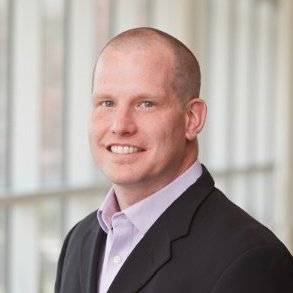Alumni Profile: Richard C. Zink, PhD

Richard C. Zink, PhD
Profession
Principal Research Statistician Developer, JMP Life Sciences, SAS Institute
Describe your current position
I am a developer for JMP Clinical, an innovative software package designed to streamline the review of clinical trial data. JMP Clinical enhances the review process by tightly integrating powerful analytical methods with well-ordered visual displays and drill-downs. The interplay between statistics and graphics affords insights into the data inaccessible by either approach alone.
List your career highlights
1. Adjunct Assistant Professor, UNC Chapel Hill Department of Biostatistics, 2014-Current
2. Chair of the Biopharmaceutical Section of the American Statistical Association (elected), 2018-2020
3. Publications Officer of the Biopharmaceutical Section of the American Statistical Association (elected), 2016-2018
4. Safety Scientific Working Group of the Biopharmaceutical Section of the American Statistical Association, 2014 – Present
5. Host of Biopharmaceutical Section Podcast, 2013 – Present
6. Industry Co-chair of 2015 Biopharmaceutical Section Statistics Workshop
7. Menon S & Zink RC, eds. (2015). Modern Approaches to Clinical Trials Using SAS: Classical, Adaptive, and Bayesian Methods. Cary, NC: SAS Institute Inc.
8. Zink RC. (2014). Risk-Based Monitoring and Fraud Detection in Clinical Trials Using JMP® and SAS®. Cary, NC: SAS Institute Inc.
9. Statistical Section Editor of Therapeutic Innovation & Regulatory Science, Journal of the DIA, 2012 – Present
10. NIEHS Doctoral Training Grant, 1998-2003
Why did you choose the Gillings School?
The [Biostatistics] department had a very good reputation at the time, and a mentor and biostatistician at my undergraduate institution encouraged me to apply. Further, the department offered me a graduate research assistantship (GRA) at the Collaborative Studies Coordinating Center when I was accepted for the master’s program. It was impossible to turn down a known source of funding – the other universities I applied to did not offer anything.
How did your education and degree from the Gillings School influence your career?
I feel that I received a very good foundation in statistical skills, data analysis, and communication. This foundation has given me the confidence to become an effective member of multi-disciplinary teams. This, in turn, has given me confidence with other statisticians. Ideally, I hope that I exude statistical leadership to statisticians and non-statisticians alike.
In thinking about your time as a student, what experiences at the Gillings School would you consider to have had the greatest impact on your career?
I felt that the coursework, comprehensive exams, masters paper and dissertation really pushed me to reach my full potential as a statistician. Coupled with the applied skills I received in consulting and data analysis through the Biometric Consulting Laboratory and other GRAs, I felt I had a very broad theoretical and applied background to be very effective early in my career. I developed a lot of confidence to work independently, but also improved my skills in collaborating in a multi-disciplinary environment.
What advice you would like to offer to current the Gillings School students?
Student should gain sufficient experiencing in data analysis and consulting, and try to develop presentation and communication skills. Data analysis and consulting will set the student apart from individuals whose knowledge and experience is gleaned solely through textbooks. There is a lot that cannot be learned in the classroom, and many programs do not have sufficient real world training for students.
Presentation and communication skills will set the student apart because of their ability to communicate technical concepts to an often non-statistical audience. Statisticians are often very technical and very introverted. A statistician can be the smartest and most talented individual in the room, but if they cannot communicate, their knowledge is worthless. This last point is true of any scientist.
What would you say to prospective students thinking about studying at the Gillings School?
The Department of Biostatistics has strong emphasis on developing real-world skills through GRAs and consulting. I think this really sets the program apart from similar programs at other universities.
What would you consider your proudest public health accomplishment?
I think my greatest achievements stem from my involvement with the Biopharmaceutical section of the ASA. Being elected as chair and publication officer for the section by my peers was certainly a great honor. I have enjoyed several years of collaborative efforts with colleagues in industry and the FDA writing papers on analytical challenges for therapies in type II diabetes and safety analyses. I get to have interesting conversations with thought leaders on different challenges in medical product development by hosting the Section’s podcast.
Plus, I have been able to influence training and conference opportunities as a member of the Section’s executive committee, and as a member of the the steering committee for our annual workshop (industry co-chair for 2015). It has been wonderful to collaborate with so many talented statisticians, particularly since I am not directly employed in the medical product industry. It is also extremely satisfying to develop software that can improve the safety and quality of clinical programs for drugs and medical devices.
What is the best advice you have ever received?
It’s important to develop collaborations and relationships with others. Getting involved with a scientific or professional organization is a good way to build contacts, develop skills, as well as make new friends.
